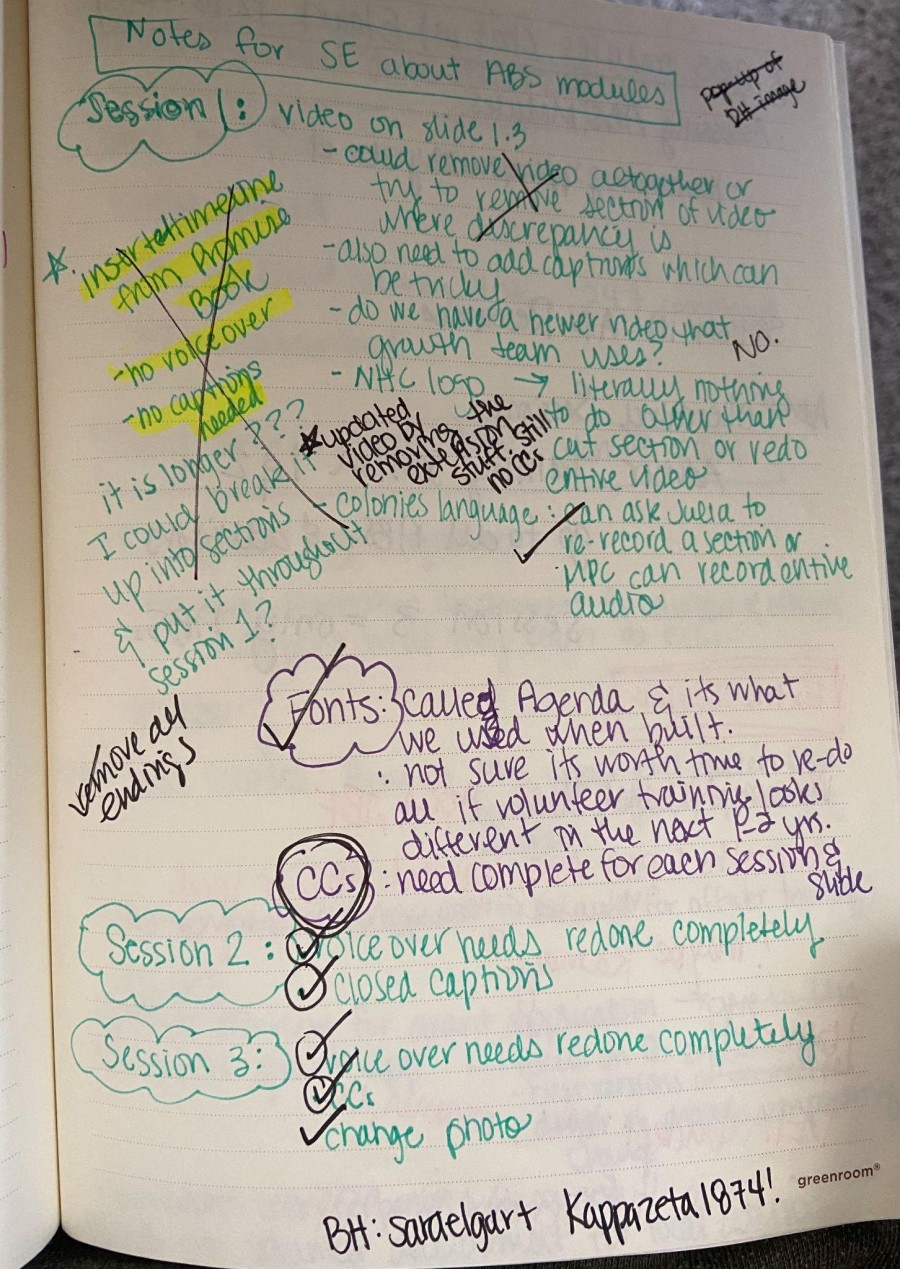Hop Off the Keyboard and Pick Up a Pen
In this age of being online all the time, you may have abandoned your trusty notebook and pen that you used to take with you to all your meetings. Now, instead of being in meetings in person, you are in a virtual box on screen, and it seems easier to type your notes out rather than mess with paper.
But according to the blog The Conversation, hand writing your notes takes more cognitive processing, and therefore helps commit the subject to memory and gives the writer better retention of the subject. Though note-taking may be faster via keyboard, you're less likely to miss anything using your notebook.
Here are some note-taking examples and inspiration you may want to try in your next meeting:
-
Different colored pens: Many people like to use different colored pens for different types of meetings, or different meeting actions. For example, notes may be in blue ink, but action items are in red. The different colors help your brain sort through your notes quickly.
-
The checklist approach: Fashion your notes in a checklist or task list. Not only does it keep your to-do list organized, there is satisfaction in striking through a note when it is complete. You can use markers to really make a statement, or a highlighter to make sure you can still see what it is you completed.
-
Movable notes: Use a spiral-bound binder, where you take notes, and then move the page to the section of your binder or notebook that corresponds with the meeting or project. You can also date or number your pages so you have them in chronological order within a section.
-
Use different notebooks: There is also an advantage to having different notebooks that correspond to different projects. For example, one could be for correspondence with clients or colleagues, one might be for brainstorming on a project, one might be for administrative tasks. Make sure that your notes are dated and organized so they are easy to find within each book.
-
Freeform notes: Some find a notebook with no lines or just dots more open and freeing. You can be free to write notes, make diagrams, even doodle which may lead to an idea. When you decide on an actionable note, you can circle it, put a star next to it, or move it to its own page, where you can ideate some more.
Whatever your note-taking style may be, remember that these are notes for you to get things done and remember important details. The pen, in this case, may be mightier than the keyboard.
